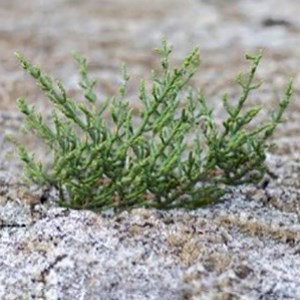Contact
salme.timmusk@slu.se, 018-672727

Salme Timmusk has received 4,5 million SEK from Vetenskapsrådet for research on finger millet and sorghum interactions to microbiome of their wild relatives. The aim is to study the possibilities to promote sustainable food production in low-income countries under the climate change.
SLU researchers under the leadership of Salme Timmusk from the Department of Forest Mycology and Plant Pathology, together with researchers at Uppsala University, Södertörn University, Waterloo University in Canada, the Institute of Evolution in Israel, and Addis Ababa University in Ethiopia received a research grant of 4,5 million SEK from Vetenskapsrådet. The project is called ‘Finger millet and sorghum interaction to microbiome of their wild relatives for sustainable food production in Ethiopia’.
– The project is part of a larger framing project “Transnational approach, combining cereal breeding and plant microbiome for sustainable crop production”. These wild progenitors grow in some of the harshest environments, and the main challenge of the project is how to expand the genetic potential of modern breeding lines using rhizosphere microbiome and their potential attributes towards plant desiccation tolerance and nutrition, says Salme.
– This research is strongly assisted by the collaboration of the Department of Molecular and Cell Biology at the University of Cape Town in South Africa. We endeavor to contribute solutions for issues of climate change in low-income countries.
The first report stating that the native bacteria can contribute crop plant drought tolerance, was by Salme Timmusk in her PhD publication at Uppsala University, 1999. She was the first in the world to show that the native soil bacteria, which are always present, and along with biocontrol and atmospheric nitrogen fixation, have the ability to protect seedlings against drought stress.
– It is now widely recognized that there needs to be plant and soil interaction in the core if we are to solve climate change issues. The rhizobacteria from extreme conditions (extremophiles), which co-evolved with the host, most likely have assisted the host plants to survive high levels of stress over a long period of time. However, there is a general problem with plant beneficial bacteria field application consistency, says Salme.
Now, researchers are working on the nanointerface interaction between plants and the bacterial colonization. Using natural and synthetic nanoparticles for formulation the researchers design synthetic root biofilms and study their mode of action, taking into account that rhizobacterial properties are dynamic and highly dependent on root development.
salme.timmusk@slu.se, 018-672727